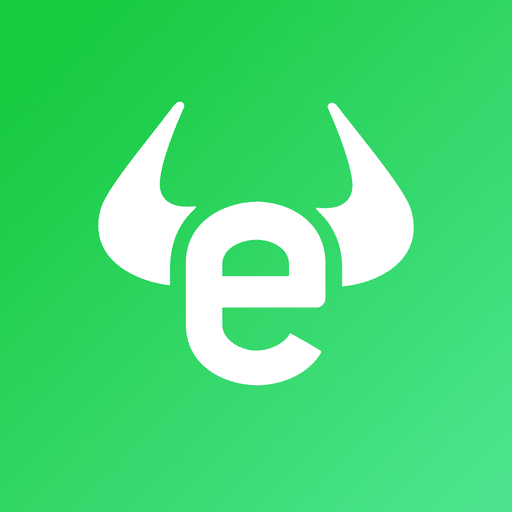Discount brokers are online brokers that offer very low pricing. In our guide we go over the best discount trading platforms with low fees or no fees at all. These brokers allow you to buy, sell or trade securities with the lowest fees possible.
Top Discount Brokers 2024
We compiled this list of brokers, based on a variety of factors. The most important factor was broker fees & commissions. This is a list of the best low cost brokers.
- Interactive Brokers – Best Discount Broker Overall
- Robinhood – Great Discount Broker For US Stocks
- TD Ameritrade – US Based Discount Broker
- e*Trade
- Fidelity
- Charles Schwab
- TradeStation
- Ally Invest
- WeBull
- Merill Edge
- You Invest
Interactive Brokers
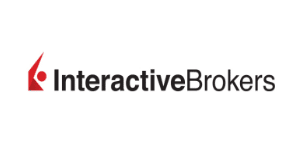
Interactive Brokers are a great option for high-volume, active traders. They offer zero-commission on stocks and have a vast selection of securities.
Their platforms are available both online and as a mobile app. Interactive brokers offer a nice selection of tools such as backtesting and simulation tools. They also offer a robust selection of educational content for beginners.
Pros
- Low Margin Rates
- Low Fees
- Great for Active Traders
- Amazing trading and research tools
Cons
- Steep learning curve
RobinHood
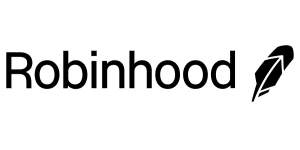
RobinHood has gained a reputation for offering low rates and zero commission fees for stocks, options, cryptocurrencies, or ETFs. A downside to RobinHood is that their selection of research tools and profile analysis is not as robust as some of the other brokers on the list. Their customer service support is limited.
RobinHood has a great, user-friendly mobile app. This is great for traders with an active lifestyle. Their platform also offers various membership tiers, with their gold margin account requiring $2,000.
Pros
- Zero commission fees for stock trades
- Zero account minimums
- User-friendly Platform
Cons
- No Retirement Accounts
- No Mutual Funds or Bonds
- Slow Customer Support
e-Trade
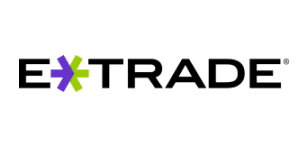
e-Trade is a high-end online broker that offers three computer-based platforms and two mobile apps. What makes e-Trade a good option is that they offer amazing options trading tools. They also have a robust array of research tools like real-time data streaming and charting tools.
e-Trade also offers additional features like the Core Portfolios Robo-advisor service.
Pros
- Selection of Platforms
- Tools
- Paper Trading
- Great For Active Traders
Cons
- No International Trading
- Do not offer account consolidation for outside accounts
Fidelity

Fidelity has gained a reputation for being the best when it comes to its zero commissions and trade order executions.
They offer platforms both online and via a mobile app. Fidelity offers a robust selection of research tools, portfolio analysis reports, and they provide access to Robo-advisors. With their platform Active Trader Pro, you can get real-time data streams and up-to-date quotes on stocks.
Pros
- Zero commission fees on stocks and ETFs
- Robust selection of research tools and content
- Active Trader Pro is available to all users
Cons
- Not available outside the US
Charles Schwab

Charles Schwab offers zero commissions for stocks, ETFs, and options. However, a downside is that their zero commission rates are only available to their US-based customers.
Their platform, StreetSmart Edge gives you access to advanced tools and charting options. The tools include real-time data streaming and trending news. Users are also able to customize their charting.
Pros
- Zero commissions for stock, ETF, and options trading in the US
- Advanced tools available via their StreetSmart Edge platform
Cons
- Bias toward high-cost financial advisors and full-service pricing
Tradestation

TradeStation has traditionally been focused on active, high-volume traders. Recently, they have expanded their network to include a robust array of educational content for beginners via a firm called YouCanTrade. They have also recently launched a cryptocurrency brokerage called TradeStation Crypto Inc.
Their TS Go platform offers discounted rates for futures and options trading. They have an amazing customer support service and great research and tools.
Pros
- Stable, high performing platform
- Great research and trading tools
- Available both online and via a mobile app
Cons
- Steep learning curve
- Confusing fee structure
Ally Invest
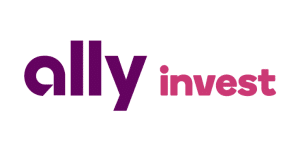
Ally Invest has a $0 account minimum and has $0 commissions. However, for options trading, they do charge a low $0.50 contract fee.
Ally Invest offers a robo-advisor via their Cash Enhanced Managed Portfolio. The Robo-advisor can manage your portfolio and rebalancing. While Ally Invest charges 0% for this service, they do have an investment minimum of $100.
Pros
- No Account Minimums
- Great Trading Platforms
- Great Selection of Research and Tools
Cons
- No Branches
- Only US Markets
WeBull

WeBull was founded in 2017 and is relatively new. It is a great option for active, advanced traders.
WeBull offers a vast array of research and trading tools like in-depth charting options, technical indicators, and advanced orders.
Their platform is user-friendly and has a sleek, modern design that is easy to navigate.
Pros
- Low costs and fees
- User-Friendly Platform
- Advanced tools
- Access to Cryptocurrency
Cons
- No Mutual Funds
- Education
Merrill Edge

Merrill Edge was launched in 2010 and is affiliated with the Bank of America. This is great if you’re a client with Bank of America since you can enjoy great perks and premium rewards.
Merrill Edge offers a web-based and mobile trading platform that offers a great Robo-advisor service.
Pros
- Great portfolio analysis tools
- Accounts can be integrated with Bank of America
- Great selection of research content
Cons
- High options fees and margin interests
- Do not offer futures or cryptocurrency trading
You Invest

You Invest offers a great platform that is affiliated with Chase’s existing banking app.
You Invest is a great option for beginners since it offers a robust selection of educational and research content. This can help beginners find their feet and develop their strategies.
You Invest also offers a Robo-advisor via their You Invest Portfolios which can manage your account for you.
Pros
- User-friendly platform
- Zero commissions
- No account minimums
Cons
- The portfolio builder tool needs a balance of $2,500
TD Ameritrade

TD Ameritrade has gained a reputation for being one of the best brokers around. They offer a robust selection of research tools such as access to years of historical data and live-streaming news feeds.
Their platform is user-friendly. They also offer a paper trading account which is great for beginners.
Pros
- Zero commissions of ETFs, stocks, and per-leg options
- Amazing research and educational tools
- Great customer support that is available through Facebook Messenger, WeChat, and Twitter
Cons
- Users might need to switch between platforms to access certain tools
- The platform’s educational content is not streamlined
What are discount brokers?
Discount brokers are brokers that facilitate buy and sell orders at lower costs and commissions than full-service brokers. Before the emergence of low cost brokers, market exchanges reserved for wealthy traders who could afford a broker. They opened the market to traders with less capital. Generally, they operate via online platforms. As appealing as this may sound, you should keep in mind that they do not offer investment or financial advice. They do not provide analysis on behalf of traders either.
One of the major differences compared to full-service brokers is that while they may be the cheaper option, they do not offer all the services of a full-service broker.
Discount Brokers VS Full-service Brokers
Whether you decide to go with a low cost broker or a full-service broker depends on your needs and goals.
Discount brokers are a great option if you don’t have a lot of money to invest and cannot afford the cost of a full-service. It is also a good option if you prefer making your own decisions on what to invest in and when.
You might consider them if you prefer making online or mobile transactions.
Generally, these low cost options offer great research, education and tools which help traders make informed decisions about their money.
In contrast, full-service brokers are a great option if you find investing daunting and would like a financial advisor to walk you through investment opportunities. Full-service brokers are best suited toward wealthy investors who have a high net worth.
This option is great for investors who are looking for social networking opportunities. If you’re stuck and can't decide, keep in mind that full-service brokers provide access to financial advisors whereas discount options do not. We suggest thinking about your goals, needs, and financial standing before making a choice.
Why use one?
They are best suited to traders who want the freedom to manage their finances and financial assets. They offer the freedom to develop your own strategies. While they generally do not offer the services of a financial advisor, they do offer a plethora of research and educational tools and content which is great when managing your finances.
They are also a good option for traders on the go due to their online and mobile platforms. They are ideal for investors or traders who want to trade frequently but would rather forgo financial advice.
Like traditional brokers, they should be registered to a financial institution like the Securities and Exchange Commission (SEC), FINRA, and other top tier institutions. Broker registration is vital to ensure the safety and security of your assets.
Pros and Cons
Before making a decision, here are a few pros and cons:
Pros
- Lower costs and commission fees
- Unbiased service
- Access to extensive research and educational contact
- Freedom to manage your finances
Cons
- Do not offer financial guidance or advice
- May include hidden costs and fees
- Some offer minimal customer services which can make the trading daunting for beginners who might need assistance
Commission Free Trading Explained
Generally, they offer commission-free trading. How do they make money then?
They should have their fee structures available to clients. The fee structures detail the fees and costs that traders can incur when using the broker’s services. So, while they offer commission-free trading, they charge for the use of their services.
One of the ways they earn money is through payment of order flow.
Payment of order flow can result in low-quality order executions. This leads to slightly higher buy prices and lower sell prices. Brokers can make a profit from this process.
Another way they earn an income is via interest income. Generally, most investors hold their money in a brokerage account. Investors can then earn interest on this money. However, brokers will likely be investing this money in low-risk bonds or government-backed security.
Brokers can then earn money from these investments.
They may offer premium services at additional cost. These services are generally locked behind a paywall and can include free trade programs or access to financial advisors.
Another way to earn is by trading against clients. With this method, brokers actively bet that their clients will make a loss and directly fulfill their orders rather than execute them via the open market. In this case, brokers will make back the money their clients lost. This is a rare practice.
Brokers can earn money through ETF and Mutual Fund offerings . Here, brokerages create and offer their own ETFs and mutual funds and make money off of the exchange fees and commissions.
How to pick the best option?
Here are a few things you should consider before making your decision.
Regulation
Checking whether a broker is regulated is one of the most important aspects when choosing a broker.
Choosing a broker that is regulated by a trusted financial institution offers you a sense of security when it comes to your money and financial assets. Regulation ensures that the broker is following the proper financial guidelines and helps prevent fraud.
Something to keep in mind is that it is important to check the reputability of the regulators as well. Not all regulatory bodies are created equal and ensuring that the financial institution is trustworthy is important.
A good rule of thumb when vetting brokers is to check their client reviews and client experiences. The court of public opinion is a great way to check whether a broker is safe.
Personal Goals
Before deciding on a broker, you should consider your personal goals, needs, and wants. What would you like to achieve by investing and trading and which broker is best suited to help you reach those goals? Are you looking for long-term or short-term investments?
These are a few questions you should think about before choosing a broker.
We suggest that you make a list of your goals before looking at brokers. Once you know what you want, you can begin looking into the various financial assets that you can trade and invest in. By doing so you can get a clear idea of which assets you should invest in to achieve your goals.
Then you are free to begin researching brokers in search of one that meets your requirements.
For example, if your goal is a long-term investment for a retirement fund, you could consider investing in company stocks. You would then search for a broker who deals in stocks and has stock-related benefits.
Tradable Securities
Related to your personal goals are tradable securities. Tradable financial assets include equities and fixed income instruments. These are bought to hold them as an investment.
If you’re looking to invest in tradable securities, you should check whether the broker offers a large selection.
You should also check whether they offer the security you wish to invest in.
Research and Tools Available:
Whether you’re a beginner or an advanced trader the research and tools offered by a broker should be near the top of your list of requirements.
The broker you choose should offer a robust selection of trading and research tools. These include real-time news and data, watch lists, a portfolio tracker, and detailed spreads.
You should also check if the broker offers historical data and charting features.
The selection of research and trading tools are vital when planning your strategy and deciding when and where to invest.
Extra Features
While not vital, you should check whether a broker offers fun additional features. These can include a paper trading account, which is great for beginners, or the assistance of a financial advisor.
Keep in mind that these features could be hidden behind a paywall or reserved for those with a premium account.
Education
This aspect is important for beginners. If you’re a newbie, you should ensure that the broker you choose offers a plethora of educational content and tools.
These can include demo or paper trading accounts which are great if you want to get a feel for investing without risking your hard-earned cash.
Paper trading accounts are also great for advanced investors who are looking for a new broker. They offer the opportunity for investors to get a feel for the brokerage platform and tools without having to commit to an account.
Additional educational content includes tutorials, online webinars, and community live chats.
Customer Support
Customer support is another aspect that you should carefully consider. Generally, they don’t offer financial advice therefore, having great customer support is a must.
As a general rule of thumb, you should choose a broker that offers live chat support, email support, and phone support.
The customer services provided should also be quick to respond and effective at handling any problem you might have.
How Safe are Discount Brokers?
Generally, yes. However, when your financial well-being is on the line you should not be satisfied with a general answer. Discount brokers are safe if they are registered with a trusted financial institution like the SEC, FINRA, FCA, ASIC, CySec, and others. It is up to you as an investor to check up on things like the regulation and whether they carry FDIC and SIPC insurance. We would also recommend that you check out client reviews and experiences. The court of public opinion is often a great way of vetting the safety of a broker. Publicly traded firms and registered as fiduciaries can also be considered reliable. Proceed with caution and do your research.
Which Broker Has the Lowest Fees?
In our experience, if you’re looking for a broker with low fees, Interactive Brokers is your best bet. Check out our review of Interactive Brokers above for more info. As always, make sure to do your research.
Is it possible to trade stocks for free?
Yes and no. It is common for them to waver commission fees and provide free stock trading. However, they do charge certain fees and require account minimums. Before choosing a broker, it is wise to check out their fee structures so that you avoid hidden costs. While some brokers might offer free stock trading, making use of the brokerage and their platform can incur certain costs and fees.
How much do I need to start investing?
There isn’t a set amount of capital that you need to start investing. Depending on the broker you choose, the amount of capital you might need will vary. The amount of capital you need will also vary depending on the financial asset you want to invest and trade-in.
Do I Need a Bank or a Broker?
This depends on your goals. If you have long-term goals such as saving for a retirement fund or a college fund for your children, you might want to invest in company stocks. Stock trading generally requires a broker to access the stock market. Whether you need a bank or broker also depends on the asset you want to trade and invest in.
Which is Better – Discount or Full-Service Broker?
This is not an easy question to answer. Each trader has different needs. The question you should be asking yourself is what do you want? What do you need? What are your goals? And, what kind of broker would suit your needs, wants, and goals? Full-service brokers are great for investors who can afford higher fees and costs and are looking for a full range of financial services. If you’re a beginner with a smaller pocket, or an investor looking for complete control over your investment portfolio then a discount broker would be a good option.


